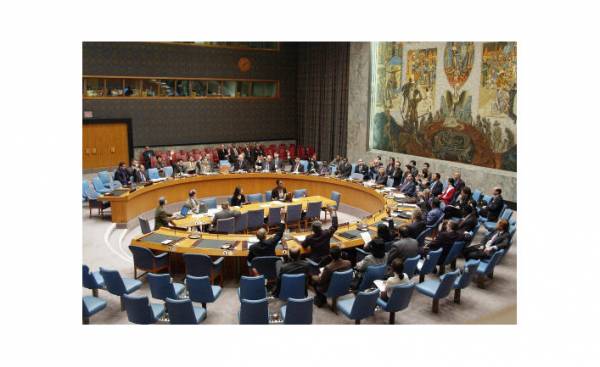
Doesn’t happen every day that the UN Security Council adopts resolution unanimously. But that’s what happened on Saturday during the adoption of resolution 2371, which provides for much tougher sanctions against North Korea, including a ban on the sale of coal, iron, and lead.
The big question, which all remained open up to the vote was, what position will China. He hardly would have used the veto, but the abstention from voting on measures that can cause even minor damage to the Chinese economy and potentially weaken Beijing’s influence in its Northern neighbor, were in the highest degree possible.
As a result, China apparently felt that the threat of a growing nuclear potential of North Korea outweighs all other factors. Perhaps he also took into account the conviction with which you will encounter if you remain on the sidelines, and the trust, which will receive, sharing a common view of the international community.
The voice of Russia too cannot be taken for granted. Although Moscow has long seen nuclear Arsenal of North Korea as a threat, the commitment of the international club is rarely a top priority, besides the new US sanctions, last week, signed by President Donald trump, clearly not encouraged cooperation. However, Russia, like China, chose to focus their attention on more serious danger.
As a result, we got an example of how to work the international system that — lately — it happens so rarely. Sanctions are intended to strengthen the isolation of North Korea and to increase the cost to Pyongyang on its nuclear program. Voting can also be considered something of a diplomatic triumph of the administration of the trump.
The resolution was a direct response to North Korean missile tests, during which the United States first came within reach. America is not a great master to organize an international support of their own interests, and even less when talking about the UN, but this time she succeeded.
We dare to speculate why. One reason was the skillful preparation of the Secretary’s Rex Tillerson. Despite the rumors that he will soon be disappointed and might leave his post, Tillerson last week spoke at the state Department before the media with a message that was clearly intended primarily for North Korea and its neighbors.
That said Tillerson: “We don’t want regime change; we do not want the collapse of the regime; we do not want an accelerated reunification of the Peninsula; we are not looking for an excuse to send troops North of the 38th parallel.” Thus, Tillerson in an unequivocal manner dispelled at least some fears, of course, caused North Korea to build nuclear capabilities.
Contrasting sharply with the militancy, which in recent months was echoed in the statements of both sides, Tillerson also proposed, although under specific conditions — to negotiate directly and to provide security guarantees. Although it is difficult to imagine that Pyongyang will abandon its nuclear ambitions, the talk about the prospects of negotiations affects another aspect of the position of North Korea relating to nuclear weapons: it’s the only thing she can attract attention.
At the same press conference Tillerson made a small but significant concession to China, freeing it from liability for “the situation in North Korea”. This position is at odds with the earlier assumption trump that China can solve the problem if it really wanted to.
In the text of the resolution contains a number of compromise solutions, which may have persuaded China and Russia to raise their hands, and not to abstain. One of them — if we continue the topic of the talks was a call to return to the six-party talks, whose ultimate goal was the denuclearization of the Korean Peninsula. Honesty North Korea has always been in question, but given that the South Korean government is showing new interest in diplomacy and nuclear program, Pyongyang has moved forward significantly, this perspective may not be as distant as we think.
Although it seems that the current trend — as seen on the controversy surrounding trump and the British exit from the EU — is more conducive to tearing, not unity, unanimity manifested on the issue of North Korea, as well as a clever policy of carrot and stick, the event is extremely positive. The good news is quite rare in international relations. When they appear, they should be highlighted.







